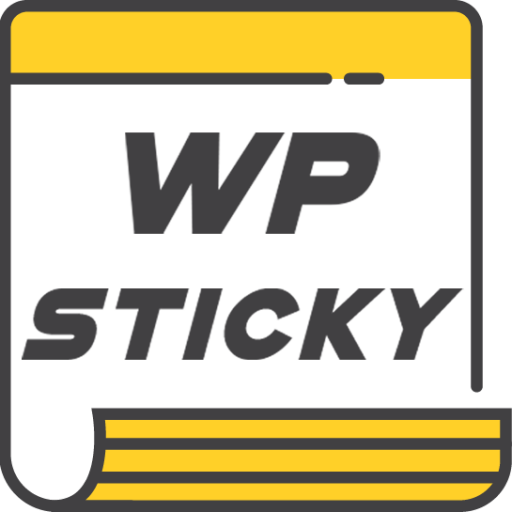Many years ago, programmers felt the need to share their code, discuss it with others and leave other programmers a possibility to collaborate and add their suggestions. As a result, GitHub was developed in 2008 and has become a ‘social network’ for programmers. It has more than 70 million users that host over 200 million repositories on GitHub.
GitHub became a tech community with many possibilities for developers and programmers. However, the number of newly developed programming languages is increasing, and the needs are changing. Similar services are created, and every developer can find the best replacement when GitHub is insufficient. This article shows a list of the best GitHub alternatives for 2023. It shows the need for other platforms that could help everyone stay on track, deliver the best and enjoy the most of it.
1. Bitbucket
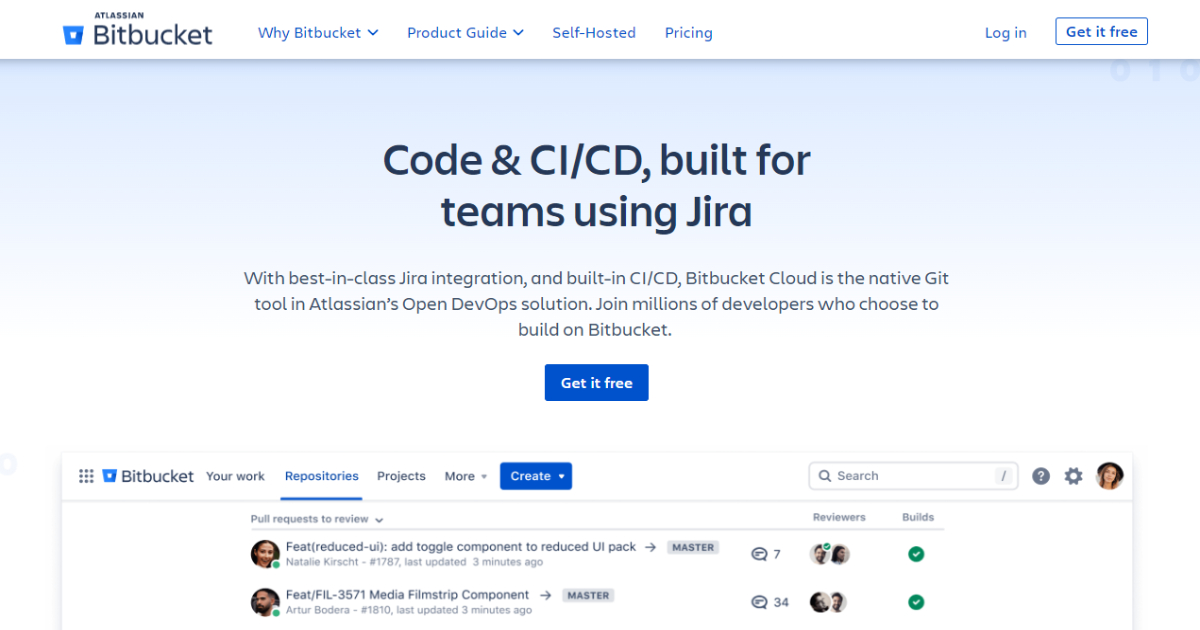
Bitbucket became a great alternative to GitHub. It is based on Git and supports an unlimited number of repositories. Furthermore, it offers project planning services, team collaboration on the same code, code testing, and deployment. Atlassian develops it, offering great integration with Jira, and you can automatically see all your Jira issues and open Jira tickets.
Also, it provides automated deployments over a built-in CI/CD tool and creates automated workflows. It supports the agile methodology. Bitbucket has a Snyk security integration for automatic scans of code. Its features make it an excellent place for code writing and software development. On top of that, it has a cloud for unlimited private repositories.
2. GitLab
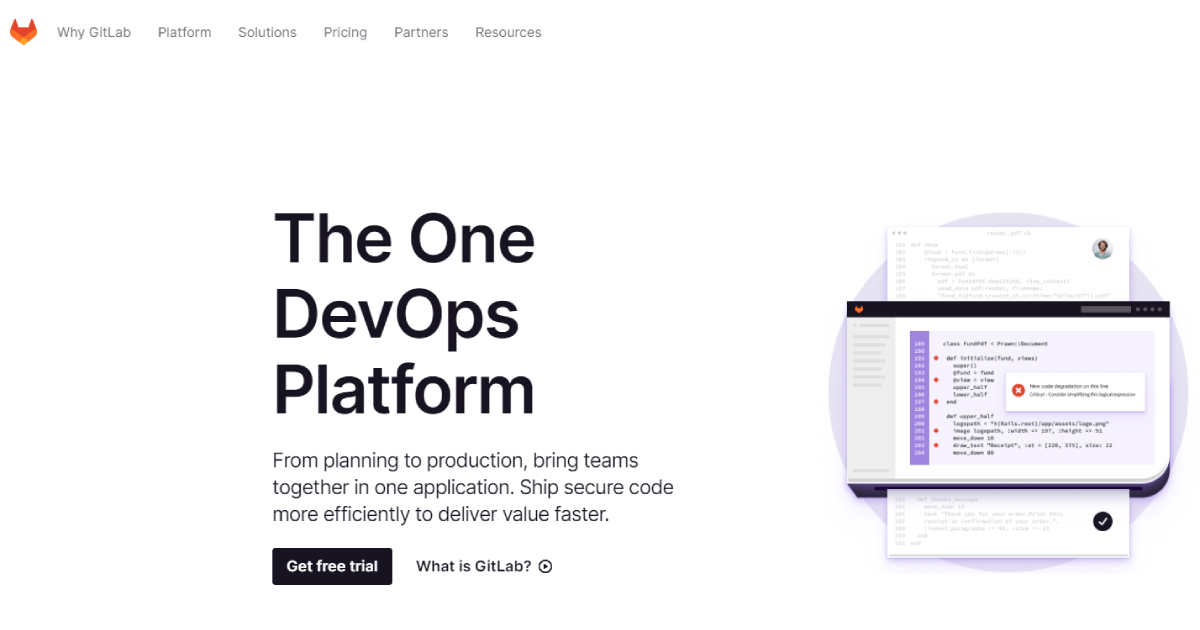
GitLab is another excellent solution. It is open-source with constant support from their development team. On top of that, it is a perfect platform for project planning and creating. It brings the whole team together for collaboration, and it tracks progress. It offers source code management and code review. Later, the team can perform automated testing and analyze and verify the code. GitLab provides additional testing and security scanning for secure applications and protected releases. Also, it offers a substantial configuration of the application environment and different management tools.
GitLab has three pricing plans. First is free with limited storage and monthly transfer. However, for more features and storage, you can use a free trial and see if you need it.
3. Launchpad
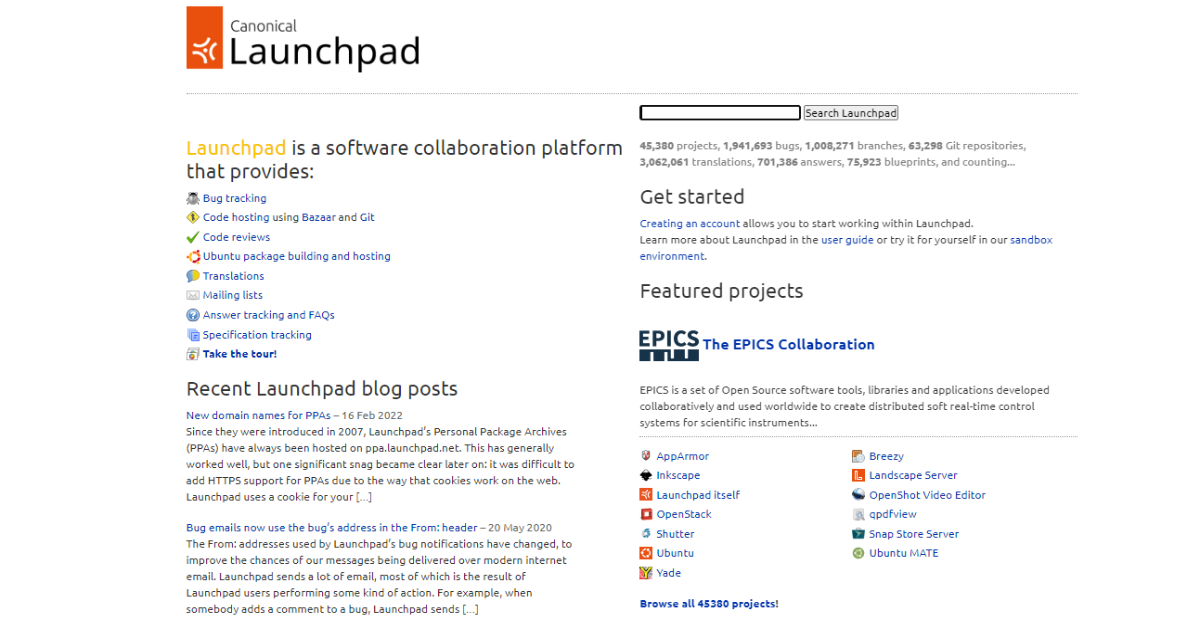
Launchpad was developed in 2007 but only became mainstream due to its limitations. However, it is an excellent option for developers who like openly communicating with others and asking for suggestions. It supports multiple languages, and it comes with Ubuntu packages. Unfortunately, it does not have its cloud for hosting, but it uses Bazaar and Git.
Launchpad lets you develop and publish software, collaborate with other teams, and track their projects. Launchpad is great for tracking bugs and other issues. Also, it offers code reviews, bug reports, statutes, and patches. You can link bugs with branches and send comments and explanations.
Launchpad is open-source and free to use.
4. Beanstalk
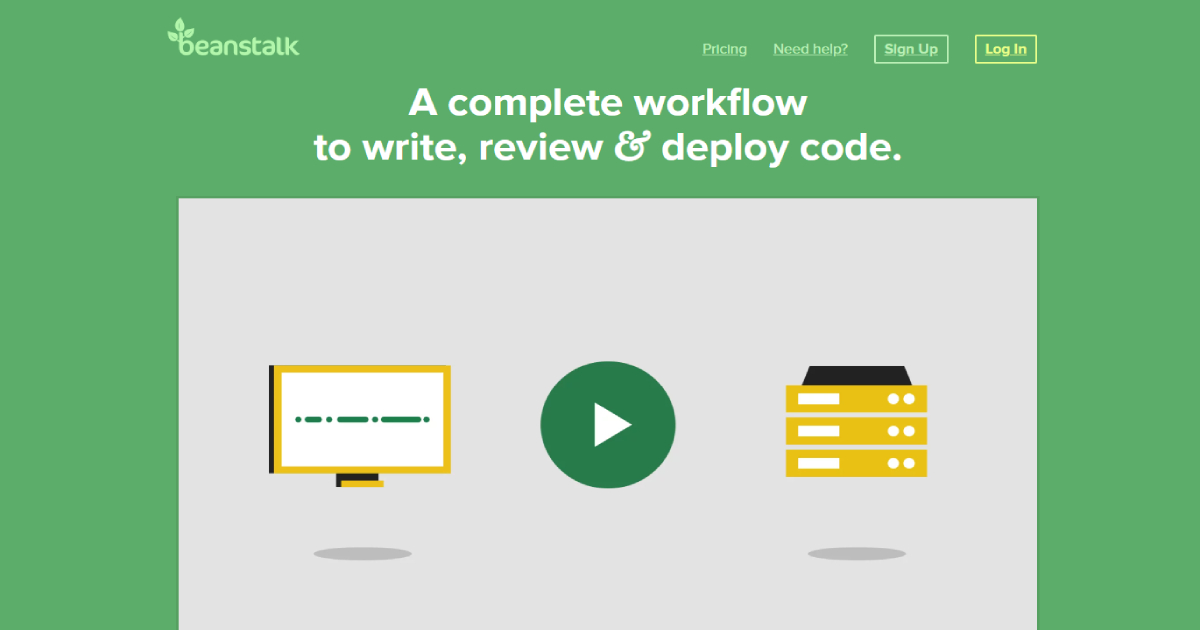
Beanstalk is another excellent option that offers a complete workflow for writing, reviewing, and deploying code. Beanstalk offers a clean code review and tracks all project issues. It is suitable for team collaboration, file sharing, and tracking changes. In addition, Beanstalk lets you easily create and manage branches, the history of commits, and others. It works on Git and SVN hosting.
Furthermore, it has two-factor authentication and offers robust security for your project. Finally, it supports multiple environments and lets you manage them simultaneously. Beanstalk has five paid plans with different functionalities and a different number of users.
5. GitKraken
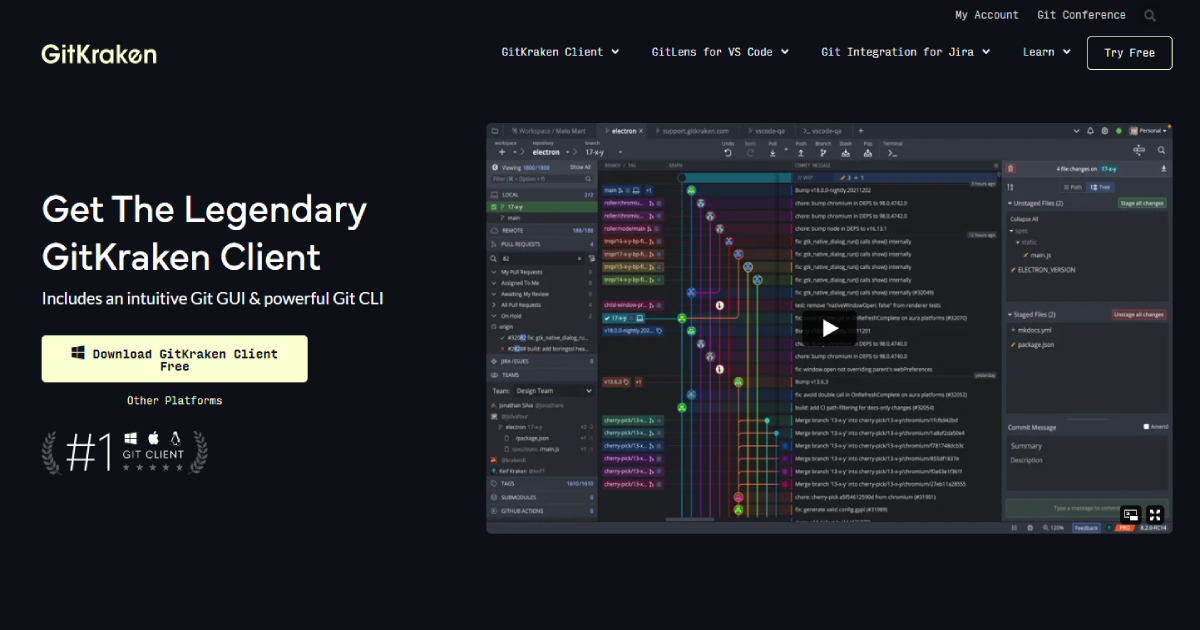
GitKraken is a cross-platform Git client for developers. It is a simple tool with drag-and-drop options in a code editor. Furthermore, it shows branch history and every change of code. GitKraken tracks bugs and offers reversion. It has a merge conflict editor and informs you if more developers are working on the same file. Also, GitKraken provides robust integrations with many useful apps that expand its functionality. GitKraken offers task tracking and Markdown support.
GitKraken has a free plan for public projects. Also, it has three paid plans for different team sizes.
6. AWS CodeCommit
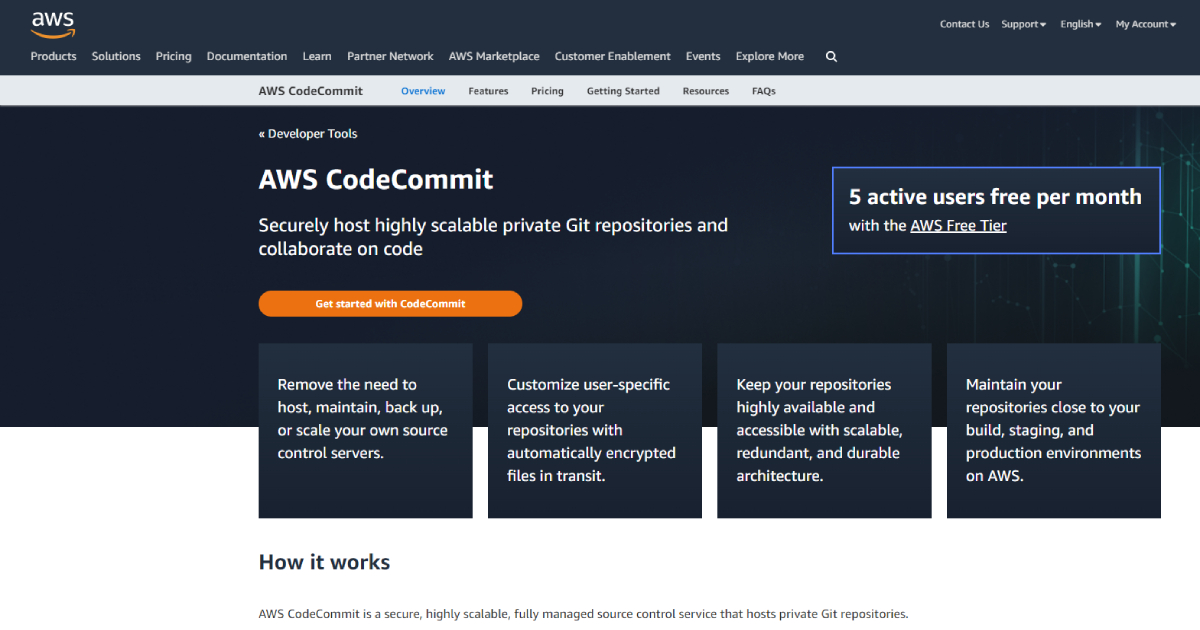
Amazon developed AWS CodeCommit for hosting Git repositories and collaboration among the teams. It is excellent for teams that work with other AWS products. It offers code storage, partnership with a pull request, branching, and merging. Its code review feature keeps high consistency and a clean workflow. Files are transferred using HTTPS and SSH, and repositories are automatically encrypted. It offers easy access.
It is free for small teams. Larger teams and projects require a paid subscription.
Final Thoughts
Sometimes, what is the most used is only the best option for some. Luckily, everything has its alternative. GitHub is not an exception. This article showed some of the best GitHub alternatives for 2023. They offer some powerful features that help you keep your consistency and code clean and always available. In addition, they are primarily a free and open source and ready to be tested. So, take your time and find the best alternative for yourself.
